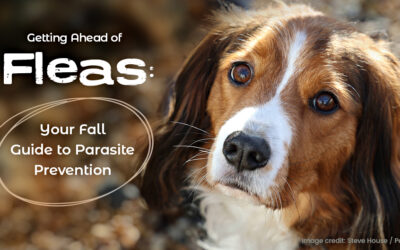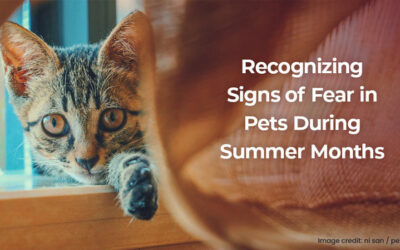Nose to Tail
Request an AppointmentDebunking Myths About Heartworm: What Every Pet Owner Should Know
Think heartworm is just a summertime issue? Or that your indoor cat is safe from it? You're not alone—many pet owners have heard (and believed) myths about heartworm disease. But the truth is, this serious and potentially deadly condition affects pets in every state...
Show Your Pet Some Love With Proper Dental Care
February is here, and love is in the air! But while you’re showering your loved ones with chocolate, flowers and cards, don’t forget the furry members of your family. This month is National Pet Dental Health Month and a perfect time to prioritize your pet’s dental...
Shining a Spotlight on Our Veterinary Technicians: The Heartbeat of Our Practice
From October 13-19, 2024, we join veterinary clinics nationwide in celebrating National Veterinary Technician Week! These incredible individuals are the backbone of our clinic, working tirelessly to ensure every pet receives the care they need. If you’ve ever wondered...
Subtle Signs of Pain in Pets
As a veterinary team, one of the most important conversations we have with pet parents is about pain. Unlike us, our pets can’t simply tell us when something hurts. They often mask their discomfort, making it difficult to recognize the early signs of pain. Whether...
Getting Ahead of Fleas: Your Fall Guide to Parasite Prevention
As pet owners, we can attest that flea infestation can not only be annoying but also extremely dangerous to our pets. Fleas can cause severe skin irritation, anemia, and even transmit deadly diseases. As we approach the fall season, it's essential to be proactive in...
Why Your Cat Needs to See the Vet
When was the last time your cat visited the vet? Cats are known for their independent and often aloof nature, which can sometimes lead to the misconception that they don’t require regular veterinary care. However, just like dogs, cats need routine checkups to ensure...
Back to School Blues: Helping Your Pet Adjust to a Quieter House
Back to school season is an exciting time for kids, but for pets, it can be the source of anxiety and stress. After a summer filled with playtime, cuddles, and attention, the sudden decrease in activity can have a profound impact on our pets. It's common for pets to...
An Itchy Problem – What You Need to Know About Your Pet’s Skin
Is your pet constantly scratching? Pets can suffer from various skin issues that can cause extreme discomfort. Some pets may develop skin irritation as a result of allergies, while other pets may be itchy from fleas or other parasites. To provide your pet some itch...
Just in time for Summer: Top 10 Off-Leash Dog Parks
Does your dog want to go on a fun summer outing? Check out one of these Top 10 Off-Leash Dog Parks in Minnesota — Fido.com Elm Creek Reserve Dog Park — Maple Grove Bloomington Dog Park — Bloomington Bryant Lake Regional Dog Park — Eden Prairie Alimagnet Dog Park —...
Summer Safety Tips for Pet Owners
Summer is a time for fun, relaxation, and outdoor activities. However, while we enjoy the warm weather, we need to take extra precautions to ensure our pets stay safe and healthy. Read on for valuable tips on keeping your pets safe during the summer months, addressing...
Recognizing Signs of Fear in Pets During Summer Months
As pet owners, it's crucial to prioritize the mental and physical health of our beloved companions. One of the most common causes of stress in pets is summer thunderstorms and fireworks. During these events, pets exhibit various behaviors that indicate fear and...
Pet Owner’s Springtime Checklist
Have you thrown yourself into your spring cleaning? If you’re like most people, you’re airing out the house, getting some plants in the ground, and enjoying the beauty of this season with your pet by your side. In fact, this is one of the best times of year to be a...










